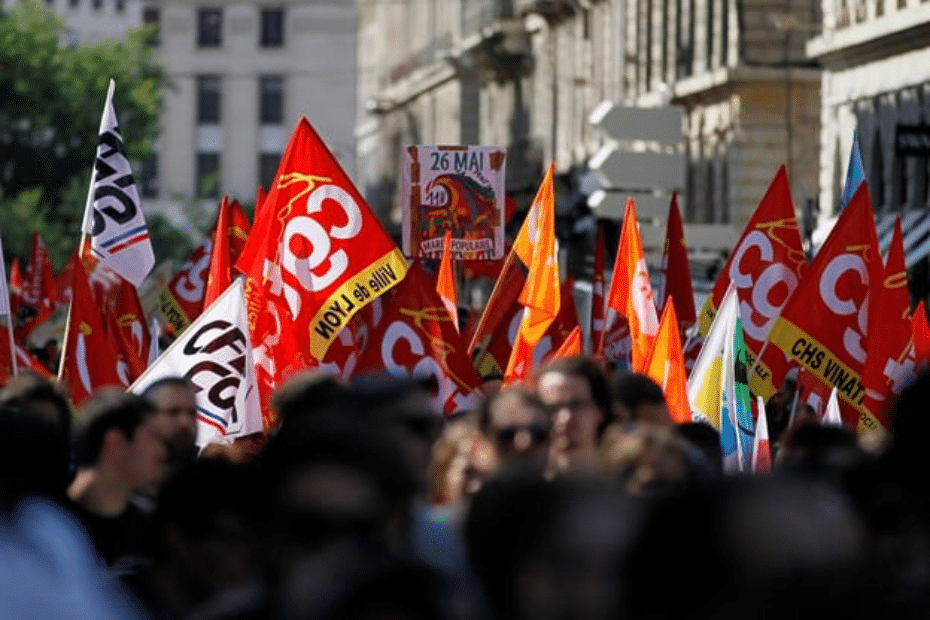Abu Dhabi
Source: mufakiru Alemarat
Dr.. Ali Mohamed Al Khouri
Inflation, unemployment and poverty rates have risen remarkably in European countries in the past two years. As a result of several factors that came together and exacerbated the crises of the old continent, including the Covid-19 pandemic, the Russian-Ukrainian war that broke out about 11 months ago – and may continue for years – in addition to expectations of a global recession. This may weaken the capabilities of the countries of the European bloc, which are now facing historical economic and social risks that may drag their economies and the global economy into new slides.
In parallel with the course of global events, we find that the European markets witnessed unprecedented rises in the prices of basic commodities. As a result of the increase in energy prices and its derivatives, which prompted governments to bear a percentage of it to mitigate damages in various sectors.
This upward trajectory of inflation resulted in the shutdown of hundreds of factories in countries such as Germany, France, England, the Netherlands and Italy. Unemployment rates increased significantly, and the daily cost of living increased; This led to popular anger in European societies, and demonstrations broke out in many cities, in which production circles no longer took place as they were in the past.
The worst wave of price hikes in Europe
In general, the European markets are facing a wave of price hikes that is the most severe and worst in modern history. It did not stop at closing many factories only; Rather, it brought several groups of people below the poverty line as well, with the decline in the purchasing power of many of them, and their struggle to secure their daily needs.
Global figures and statistics show terrifying facts, including that about 35 million people on the European continent are unable to pay heating bills in their homes, and they have two options. Either get food, or provide heating; European governments may have to provide additional support and bear more inflation to protect the neediest groups in their societies. Reports indicate that more than 15 million Europeans have come under the umbrella of the European Aid Fund’s Food Bank; This is a precedent in the history of the European continent, which has not witnessed such rates since the fifties of the last century.
And the European Commission announced in a report that the poverty rate in Bulgaria rose to 11.5 percent, the highest in European history, and reached 10 percent in Greece and 9 percent in Poland, which are also unprecedented rates.
Inflation rates in countries such as Germany, England, France and Italy also recorded new rates. In Germany, at the end of last October, it reached 11.5 percent, and in England, by the end of 2022, it reached 10 percent. It rose in Italy at the end of last November to 8.5 percent, while in France it reached 7.5 percent at the end of last September; These percentages are the highest in the modern history of these countries, or at least since World War II. According to economists; These percentages mean that about 11 million people in the four countries live below the poverty line, and find it difficult to meet their daily needs.

Central banks in European countries do not expect an improvement in inflation rates before 2024, assuming a solution to the Russian-Ukrainian crisis, and the absence of new pandemics, at a time when European governments are trying to provide the energy sources they need in order to resume the operation of the suspended factories, and life to return to normal. , but this matter may take years; The great challenge remains in providing energy supplies and basic needs in this winter, which may be the most difficult in the history of the continent.
Misty future in Europe
The European Central Bank reports that European countries will aim to sell more than 500 billion euros of government bonds, and may necessarily resort to raising interest rates to attract investments. This leads to higher inflation rates and borrowing costs in European societies, and leads to further contraction in their economic activities.
Economists suggested other measures that might be able to protect the economies of European countries and reduce the effects of inflation in their societies, such as expanding the circle of social protection, supporting idled factories, and finding alternative markets for Russian gas. There is no doubt that these measures depend on the political decision in those countries, and they will remain hostage in their prison until at least the end of the Russian-Ukrainian war on the one hand, and the cessation of existing tensions in the areas of basic supply of strategic global resources on the other hand, and then the economic system in European countries is rebuilt. To compensate for the production losses and economic downturn, incurred since the emergence of the Covid-19 pandemic.
It is certain that European governments will face several extremely difficult challenges in the coming years, amid unclear global scenarios of what might lead to things, especially with the European camp continuing to be immersed in the quagmire of the Russian-Ukrainian war. It is inevitable that the bill for this war and its aftermath will be borne by the countries of Europe, and it will continue to cast a shadow on their exhausted economies for a very long time.
It is also expected that debts in European countries will continue to rise, especially since monetary and fiscal policies will focus on finding quick solutions to the energy crisis at a time when the European region is witnessing severe climate changes, frost waves, and low temperatures.
Although European governments seek to restore financial balances; The fluctuations in the global financial and commodity markets, especially foodstuffs, will continue to exert negative pressure from the opposite side. While these tensions and difficulties expose the European community to escalating pressures, the effects of which may appear in the economies of emerging markets and developing economies, especially in many Arab and African countries that will not be immune from a sharp decline in the growth rates of their economies as well. This is what must be prepared for with more economic measures that attract and encourage investment and production. This is not the time for savings, nor for taxes, nor for economic restrictions.











